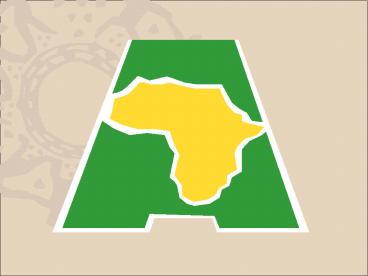ECOWAS PowerPoint PPT Presentation
1 / 23
Title: ECOWAS
1
(No Transcript)
2
- Satellite based Communication and Earth
Observation for Early Warning Capabilities in
Conflict Management in Southern Africa
3
FUTURE CONFLICT TRENDS
- Crises which are a by-product of a failed
process of integration in the overall process
of the creation of a nation State. It might be
that power is monopolised by a specific
ethnic group. This could lead to demands for
autonomy or independence.
4
FUTURE CONFLICT TRENDS
- Conflict which are the product of a Cold War
legacy - Conflicts relating to drug and arms trafficking
5
FUTURE CONFLICT TRENDS
- Conflicts of a religious character
- Roots are deeply historical
- Arise out of the continuing crisis of governance
- and mismanagement of resources.
- Transcend ethnic bonds and are often manipulated
- by political ambitions.
6
FUTURE CONFLICT TRENDS
- Conflicts of a socio-economic character
- The situation where a political or social
movement takes up arms to redress perceived
wrongs in the absence of a true democratic
system.
7
FUTURE CONFLICT TRENDS
- Environmental conflicts
- Depleting water resources
- Drought
- Famine
- Deforestation
- Global warming
- Drastic climate changes
8
FUTURE CONFLICT TRENDS
- Demographic changes in Africa
- - Worlds population increasing by an estimated
80 million people a year - - Highest population growth is in developing
countries - - Since 1965, Africa has had the highest
population growth in the world - around 2.9
per year - - Africas population is expected to exceed the
one billion mark around 2008
9
FUTURE CONFLICT TRENDS
- Military threats
- - End of Cold War shifted the emphasis from
a global offensive approach to a greater
emphasis on regional conflicts - - The emphasis in the change is moving away
from a global Soviet threat to regional
contingencies i.e. the requirement for
missile defense in regional conflicts
10
Definition of Early Warning
- Early warning may be defined as the ability to
collect and analyse information in the interests
of providing strategic options for preventive
action or, as may be required, informed response
Rusu 1997. - Early Warning is the management of violent
conflict based on 4 practices - 1) Collection and verification of information
relevant to the mitigation and prevention of
violent conflict - 2) The analysis of that information
- 3) Scenario building and optional responses
- 4) Communicating the above to decision makers
- Ch 4 The Conceptual Framework
11
WHAT KIND OF INFORMATION DO WE NEED?
- a) Qualitative Information
- b) Quantitative Information
- c) Long Term Information
- conflict and its sources are often
deep rooted - - have to study the history of the conflict
12
WHAT KIND OF INFORMATION DO WE NEED?
- d) Short Term Information
- - conflict, like conflict resolution, is a
dynamic process. The more variables that there
are to a conflict situation the higher the
possibility will be of changes. - e) Multi-Disciplinary Information
- Most conflicts are multi-disciplinary
in nature. We have to source information
from a variety of disciplines and sources.
13
DECENTRALISED AND INTEGRATED EARLY WARNING SYSTEM
- a) Decentralisation
- - information overload
- - decision overload
- b) Integration
- - We have to map the information onto each
other to understand the inter-relationships
among them
14
PRINCIPALS THAT SHOULD GOVERN THE EARLY WARNING
MECHANISM
- a) Sovereignty
- b) Confidentiality
- c) Verification
15
The Use of Satellite Technology
- The 1990/91 Gulf crisis demonstrated that space
systems could play an important role in
strengthening conventional capabilities. - Use was made of photographs and radar
reconnaissance satellites to monitor Iraqi troop
deployments and to gather early warning about the
launch of missiles using early warning
satellites. - Remote Sensing From Space National and
International Security - Bhupendra Jasani
16
The Use of Satellite Technology
- Communication Satellites establish rapid links
with virtually any part of the world. - Navigation by satellites, yielding position
accuracy down to several tens of meters is
beginning to be used by civil land and air
transportation industries. - Remote Sensing from Space National and
International Security Bhupendra Jasani
17
The Use of Satellite Technology
- Observation satellites, using optical and radar
systems, are able to distinguish objects as small
as 2 meters. - Infrared (IR) thermal devises can detect objects
at night and can determine whether camouflage has
been used. - Remote Sensing from Space National and
International Security Bhupendra Jasani
18
The Role of Space in International Security
- High performance commercial remote sensing
satellites make it possible for all States to use
technology to verify multilateral treaties as the
images can be purchased by anyone. - Vela monitoring compliance with the Nuclear
Test Ban Treaty. At first could detect nuclear
explosions in space, later improvements led to
detection in the air and on the ground. Lasted
from 1963 to 1984. - 1. Remote Sensing from Space National and
International Security
Bhupendra Jasani - 2. David Hastings US Early Warning Satellite Page
19
Great Lakes Crisis 1996SPOT Pan Imagery of
MAGUNGA Refugee Camp
20
SPOT Pan/XS Merge of Magunga Camp in September
1996
Derived Population Estimate Approximately
500,000
21
Site of Magunga Refugee Camp September 1998 (
SPOT Xi)
1996
22
Public Transport Infrastructure Monitoring
23
- END
- Satellite based Communication and Earth
Observation for Early Warning Capabilities in
Conflict Management in Southern Africa

